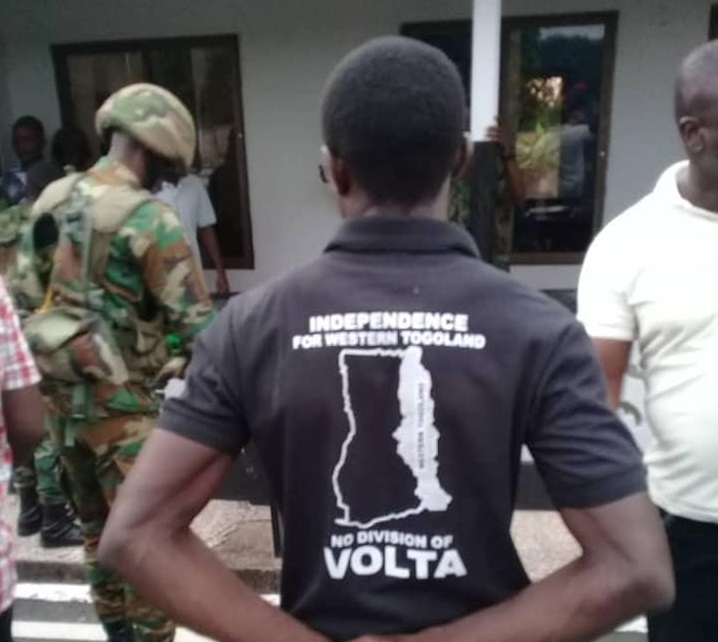31 persons charged over secessionist riots
At least 31 persons have been charged over riots linked to a secessionist group operating in the Volta Region.
They were hurled before the Accra Circuit Court Monday and slapped with five charges.
The charges are conspiracy to commit a crime, involvement in meetings of a prohibited organization, participation in unlawful activities and rioting with weapons.
The pleas of the accused persons were not taken asthe state prosecutor, ASP Sylvester Asare, requested a remand of the suspects for further investigations.
Their lawyer, Theophilus Donkor, who maintained his clients’ innocence, applied for bail.
But it was declined.
The suspects were subsequently remanded to appear on October 13.
They were arrested on Friday, September 25, after some separatists attacked two police stations at Aveyime and Mepe. They seized ten AK-47 assault rifles after breaking into the police armoury.
They ransacked the police stations, released inmates in custody, physically assaulted and injured police officers.
According to the government, the secessionists had also planned attacks on key installations.
They blocked roads leading to the Volta and Oti regions, including Kpong-Akosombo, Juapong-Ho, Ho-Mepe, Sogakope-Accra.
This left hundreds of commuters stranded in the early hours of Friday.
One person died and several others injured during the exchange of fire between the security agencies and the secessionist group.
In the past, the Homeland Study Group Foundation (HSGF), a separatist group had announced a breakaway of parts of the Volta Region, Oti Region, Northern Region and Upper East as an independent state called Western Togoland.
Led by 78-year old, Charles Kormi Kudzordzi, aka “Papavi, the group declared independence for Western Togoland, saying they were no more part of Ghana, in May 2019.
Later, he was released, while others faced prosecution in different regions.
Over time, other groups numbering about three, have also sprung up with similar objectives.
Meanwhile, Security expert, Prof. Kwesi Anning, has blamed security for the recent attacks.
He was of the view that the state security apparatus had intelligence on the potential skirmishes 36 hours before it happened.
He said a wire message to that effect was sent to the police on September 23 and therefore found the ‘slow response’ worrying.
Government has rejected claims of an intelligence failure and said it is aware of the forces behind the group, including their funding sources.
Some chiefs in the region, legislators and other groups have condemned the actions of the separatists.
Security in the towns have been tightened with several units of police deployed to vantage points.



